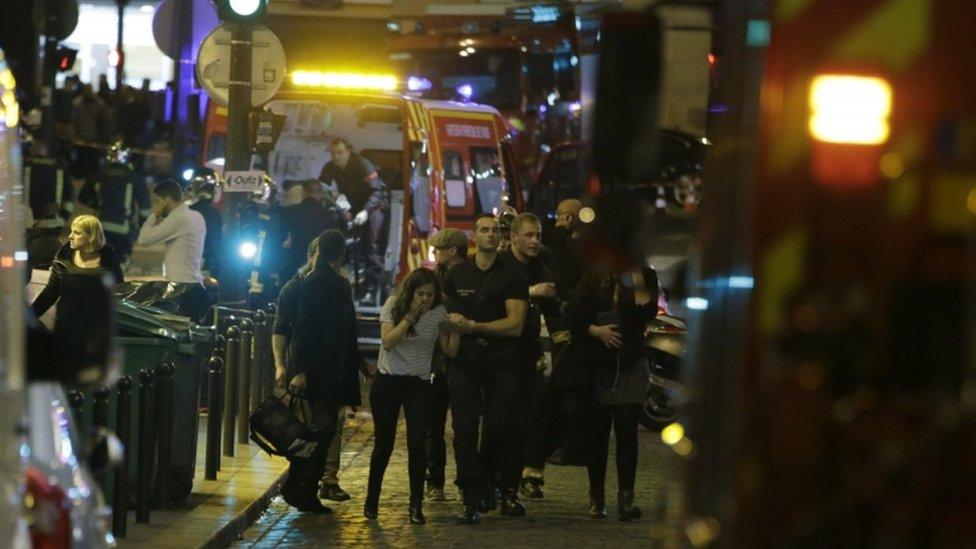Paris attacks: Injured Irishman has surgery as NI people tell of 'panic' on streets
- Published
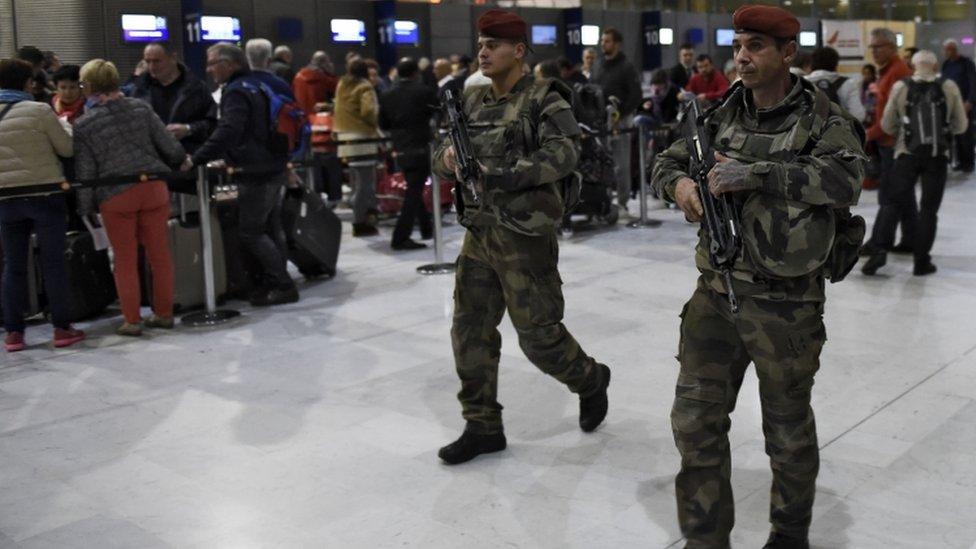
Soldiers patrol at Charles de Gaulle airport as part of security measures in the wake of the atrocity
An Irishman who suffered gunshot wounds during attacks in Paris has undergone surgery, the Irish embassy in the French capital has said.
At least 129 people have died after shootings and bombings on Friday night.
French President Francois Hollande declared a state of emergency and said the attacks were an "act of war" organised by Islamic State militants.
The injured Irishman had been at the Bataclan concert hall - it suffered the deadliest attack during the violence.
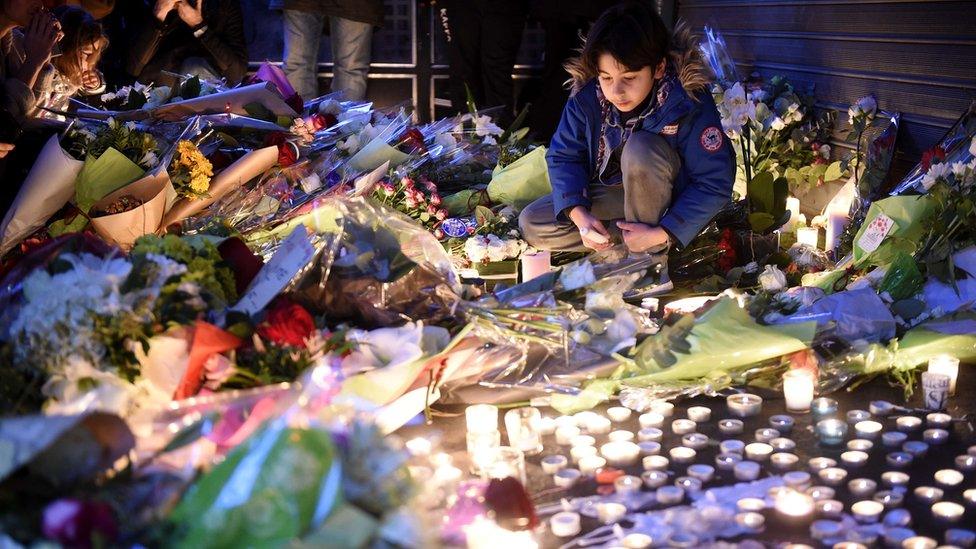
People in Paris have held vigils and left tributes to victims at the scenes of the attacks
Eighty-nine people died when gunmen opened fire inside the venue.
He had been visiting Paris for the weekend and is said to be in a serious but stable condition.

Analysis: BBC News NI's Mark Simpson in Paris
Stepping off a bus at the Arc de Triomphe on Saturday night felt more like Belfast in the 1970s than Paris in the 21st Century.
On one corner was a large group of armed police officers, on the other was a squad of young soldiers.
There was a khaki-green army pick-up truck beside them, looking totally out of place in a part of Paris associated with tourism rather than terrorism.

One Northern Ireland academic visiting Paris said the attacks had caused "panic" on the city's streets.
Ulster University's Prof Paddy Gray said the city had been left in a "crazy situation" by the attacks.
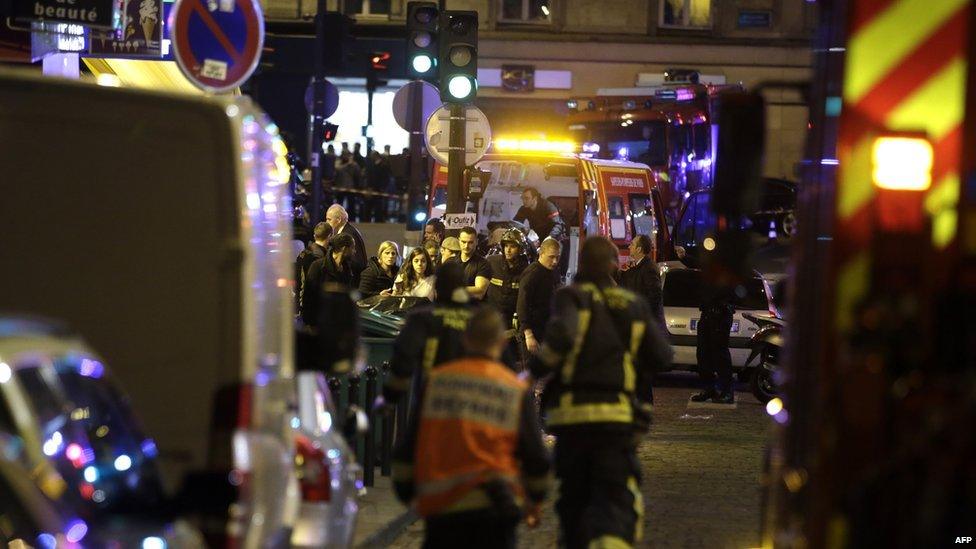
The attacks had been "organised and planned", the French president said
Hospital officials have said 352 people have been injured, with 99 in a critical condition. Several arrests have been made in Belgium.
One British man, named as Nick Alexander, is among the dead. He was also at the Bataclan.
Northern Ireland's First Minister Peter Robinson and Deputy First Minister Martin McGuinness said they "stand shoulder to shoulder with President Hollande and France" after the "savage, barbaric and cowardly terrorist attacks".
Ulster's European Champions Cup rugby match away to Oyonnax was postponed.
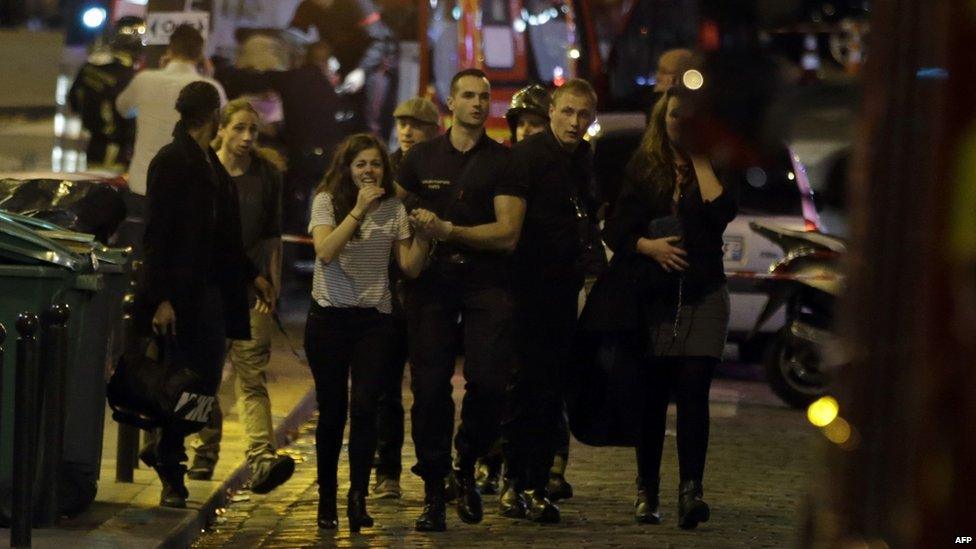
Prof Paddy Gray said the city had been left in a "crazy situation" by the attacks
And renowned Irish rock band U2 cancelled a concert that was due to take place in Paris on Saturday night.
Prof Gray was in a bar watching a football match on television when the attacks began.
As he left to return to his hotel, police told him and others on the street to run.
Speaking on Saturday, Prof Gray said: "People just ran everywhere. You didn't know what you were running to or who you were running with - that was the panic.
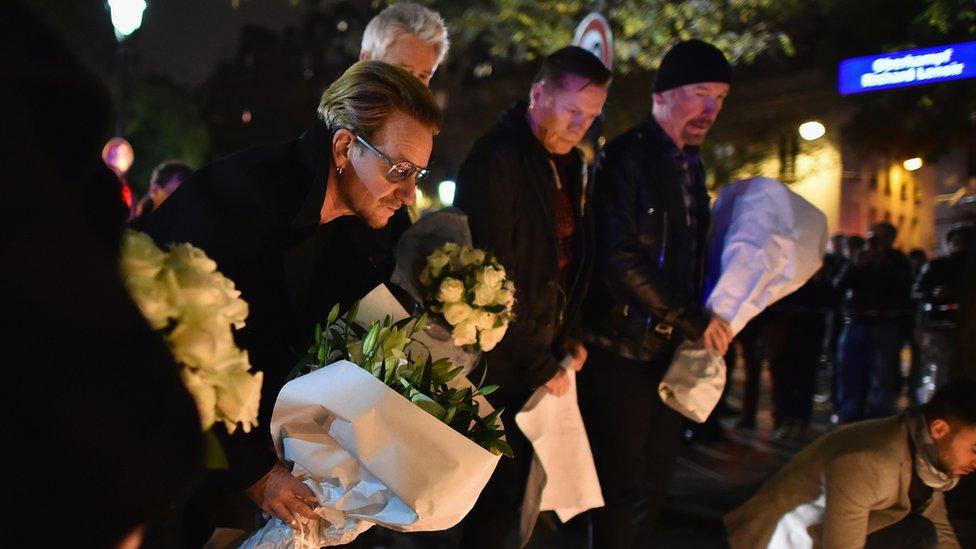
U2 cancelled their Paris concert on Saturday and laid flowers at the Bataclan concert hall
"It's when we reflect about what had actually happened and the seriousness of it, that's the scary bit."
BBC Northern Ireland's former business editor James Kerr was at the Stade de France stadium for the France v Germany football match when he heard "two or three small explosions".
Speaking from Paris, he said: "We thought [the explosions] sounded like someone had got some fireworks into the stadium.
"We had no idea that it was anything more significant.
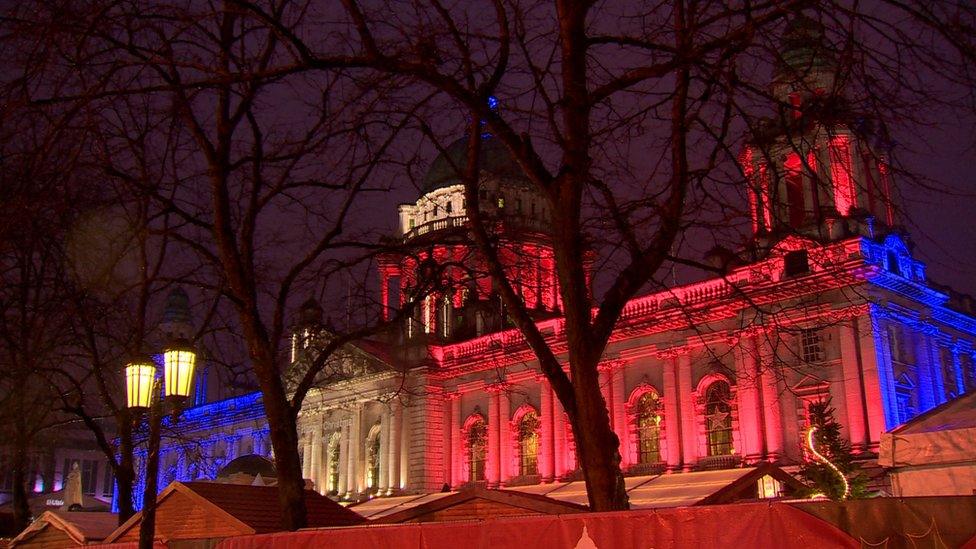
Belfast City Hall was lit in the colours of the French national flag in an "act of solidarity"
"This city and this country as a whole have clearly been deeply and profoundly shocked by what happened last night."
A 26-year-old woman from Limavady in County Londonderry, who did not want to be named, said she ran into a pub in the centre of Paris with her partner after hearing gunshots nearby.
"A few people were panicking and others lay beneath the counter.
"Everyone had tears in their eyes."
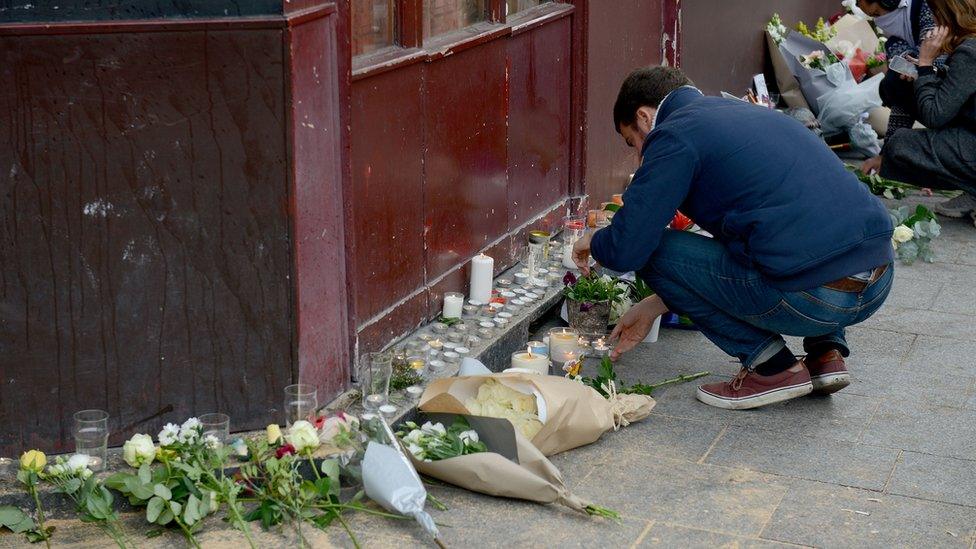
Bars, restaurants, a concert and a high-profile football match were targeted in the attacks
Books of condolence are being opened at Belfast City Hall and Londonderry's Guildhall.
Belfast City Hall and other local government buildings in Northern Ireland were lit in the colours of the French national flag on Saturday evening in an act of "solidarity" with the French people.
In the Republic of Ireland, thousands of people marched through Dublin city centre on Saturday and held a one-minute silence as a mark of respect to the victims of the attacks.
The attacks are the worst atrocity in Europe since the 2004 Madrid bombings.
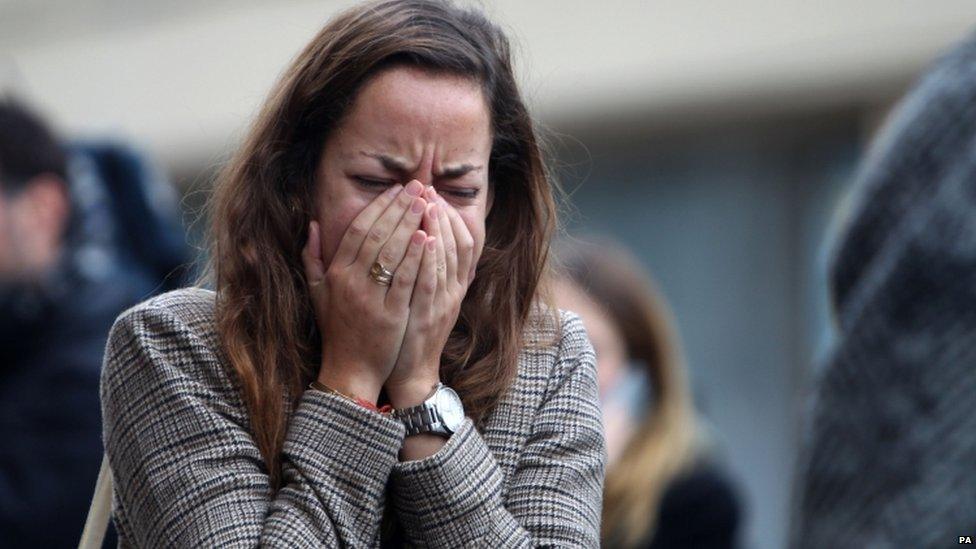
Three days of national mourning have been declared in France after the attacks
- Published15 November 2015
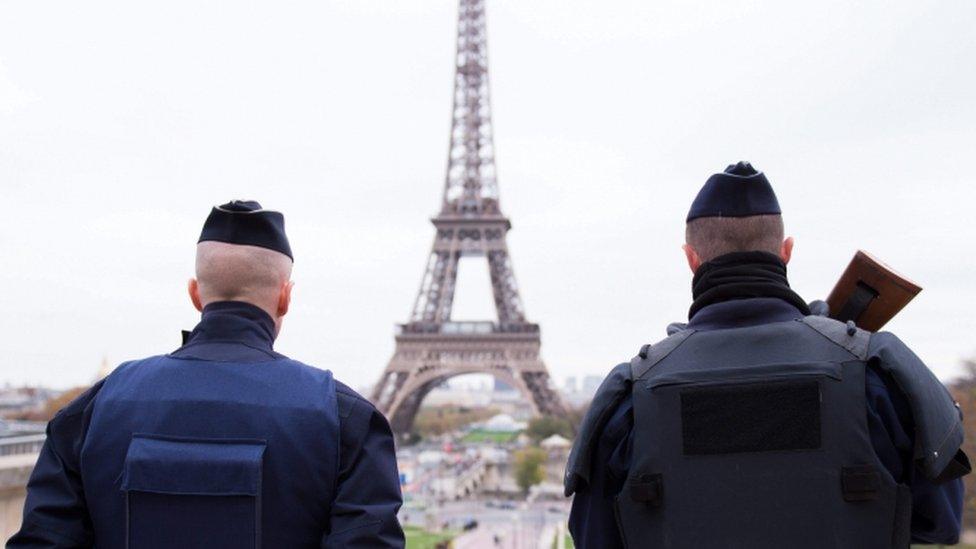
- Published15 November 2015
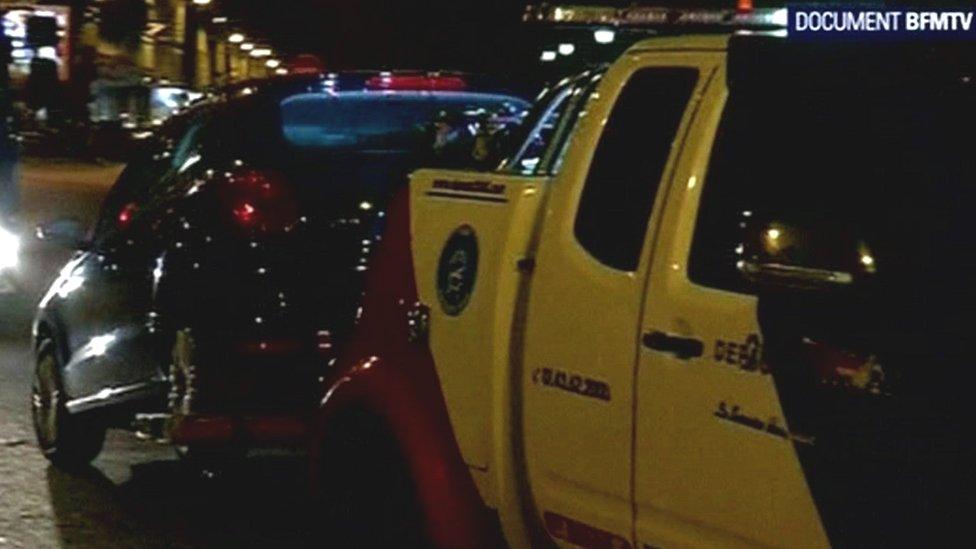
- Published15 November 2015
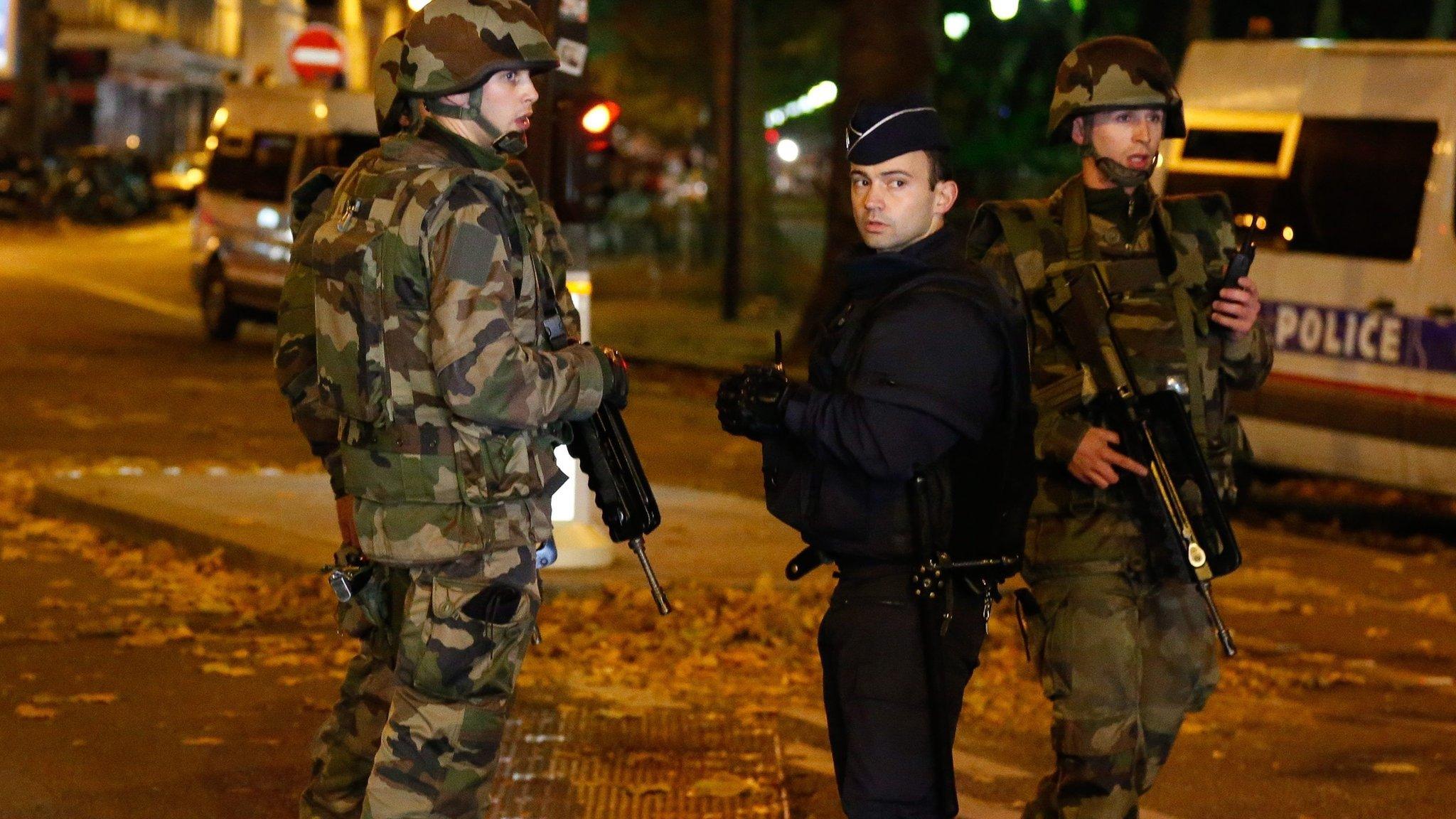
- Published13 November 2015
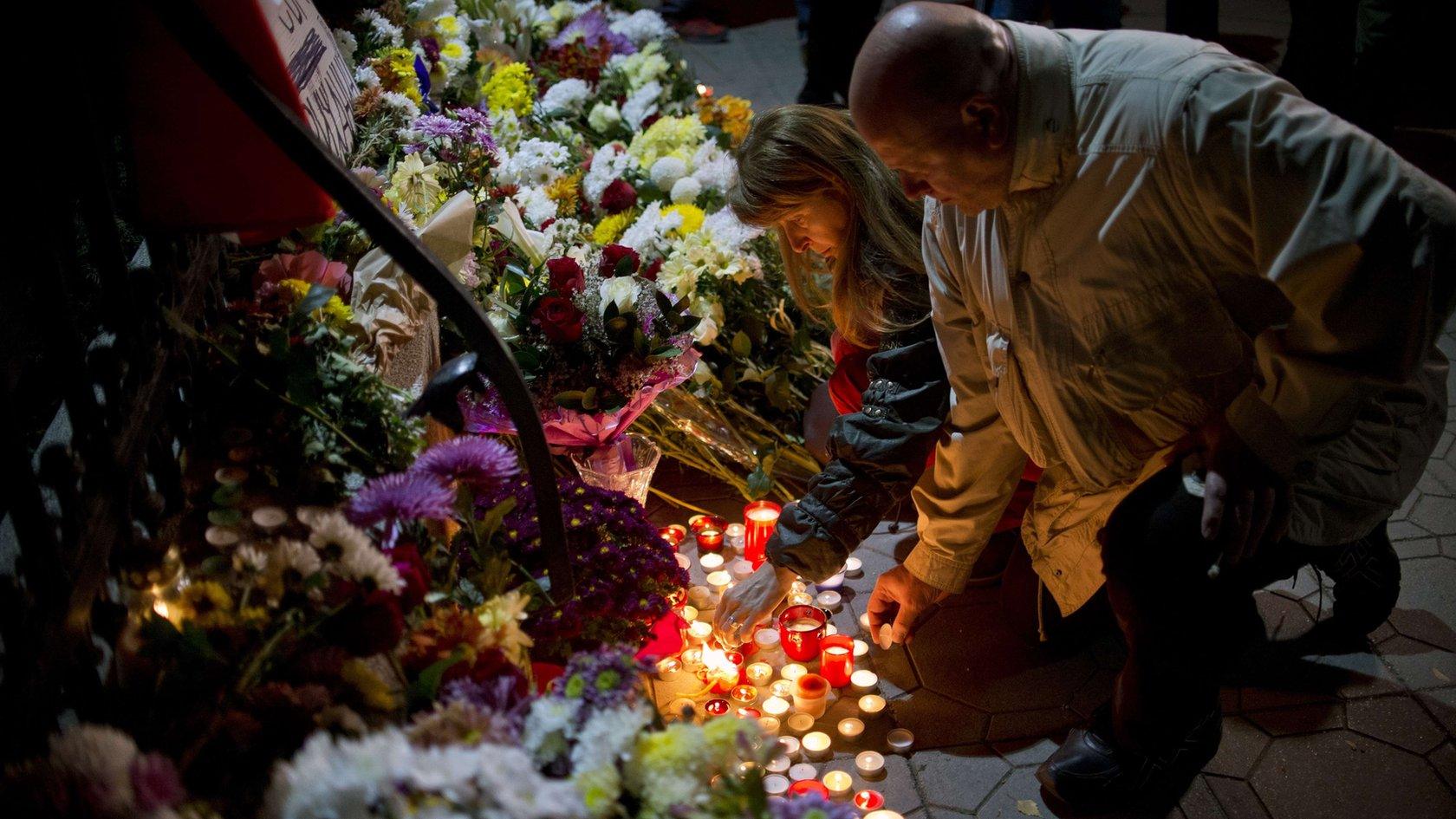
- Published14 November 2015
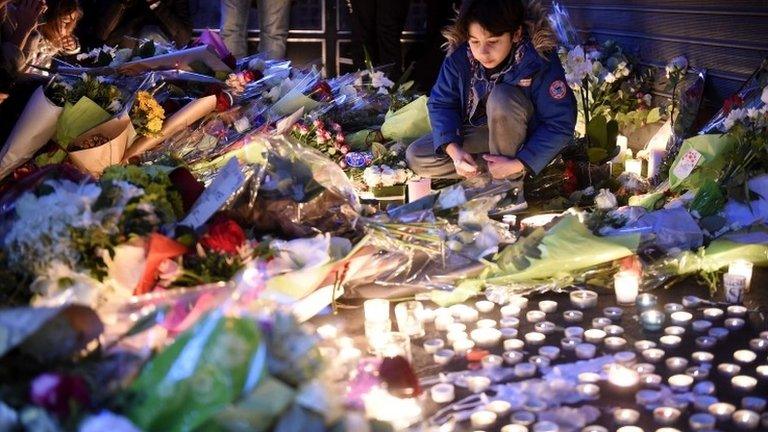
- Published14 November 2015
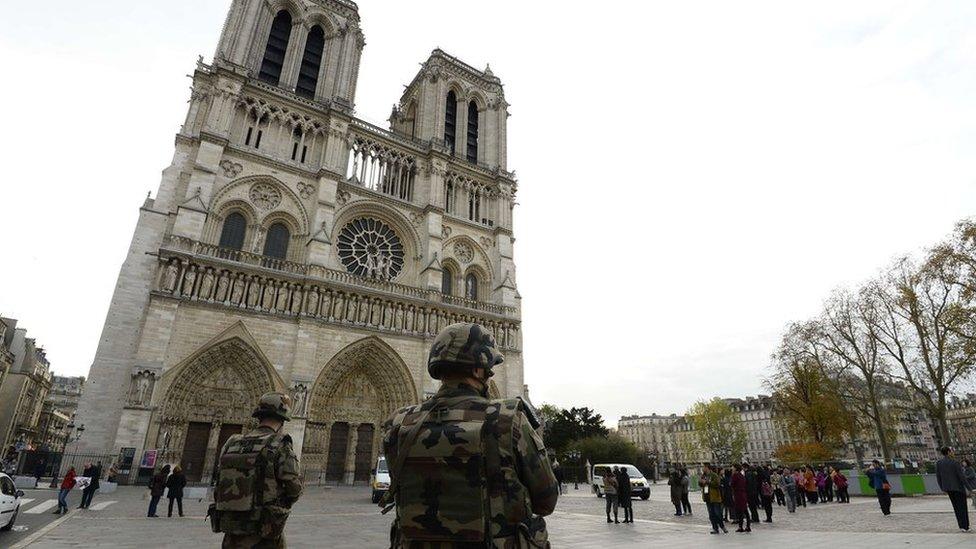
- Published27 November 2015
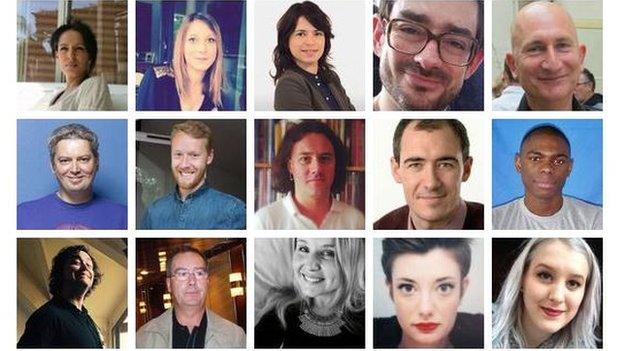
- Attribution
- Published14 November 2015
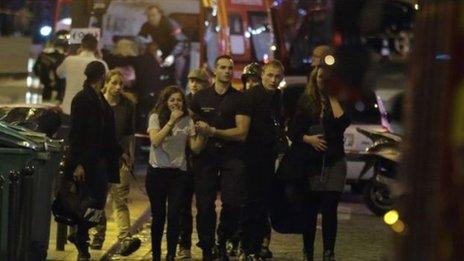
- Attribution
- Published15 November 2015
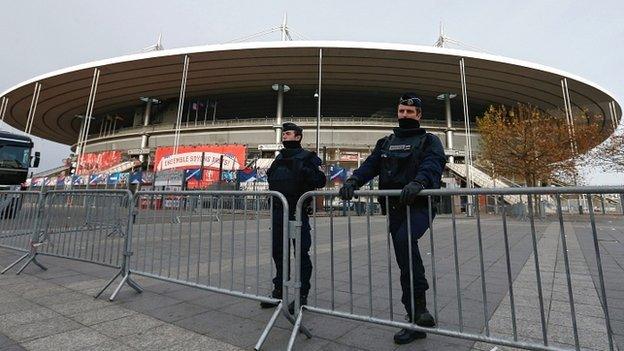
- Published14 November 2015
